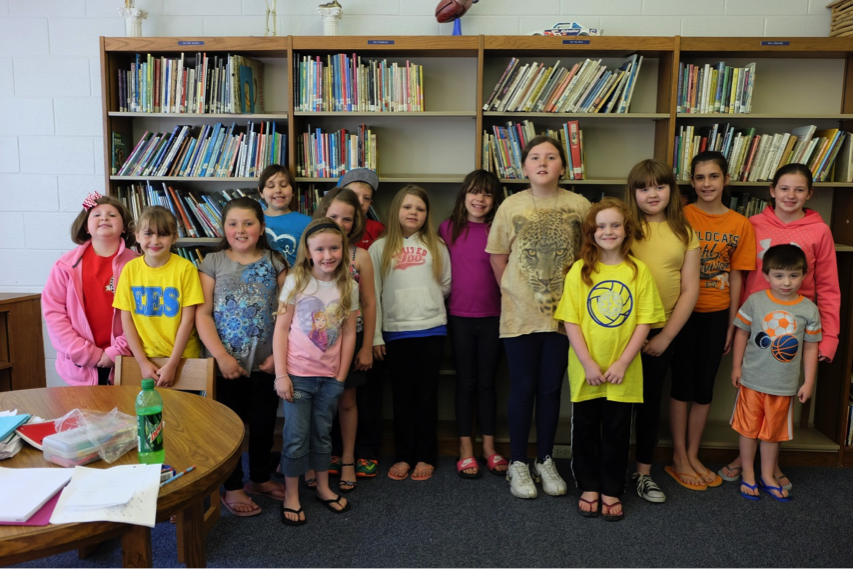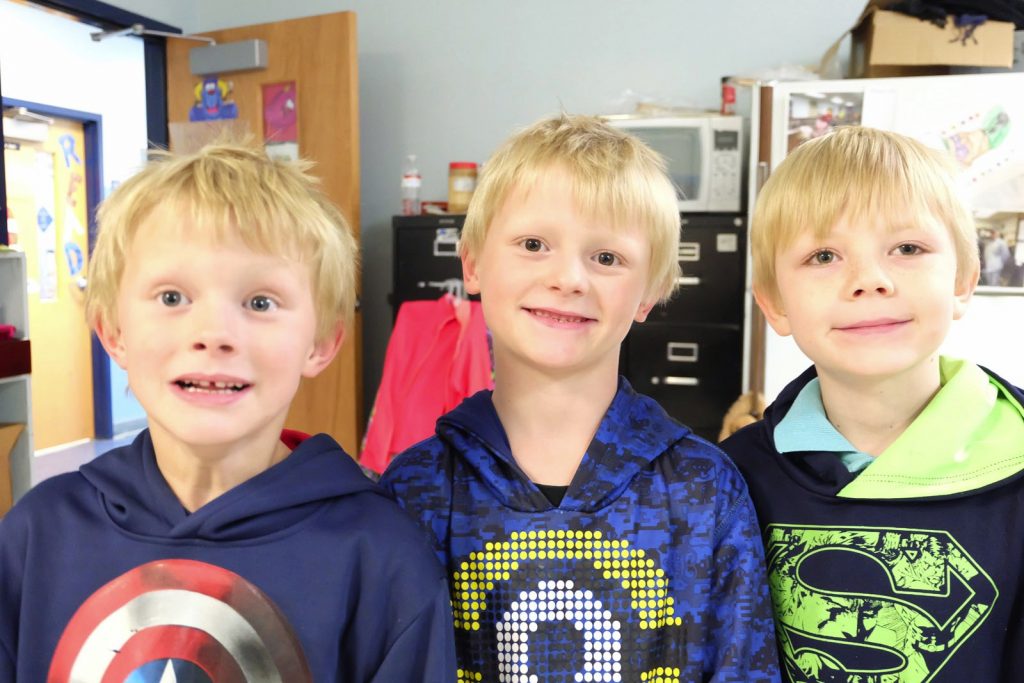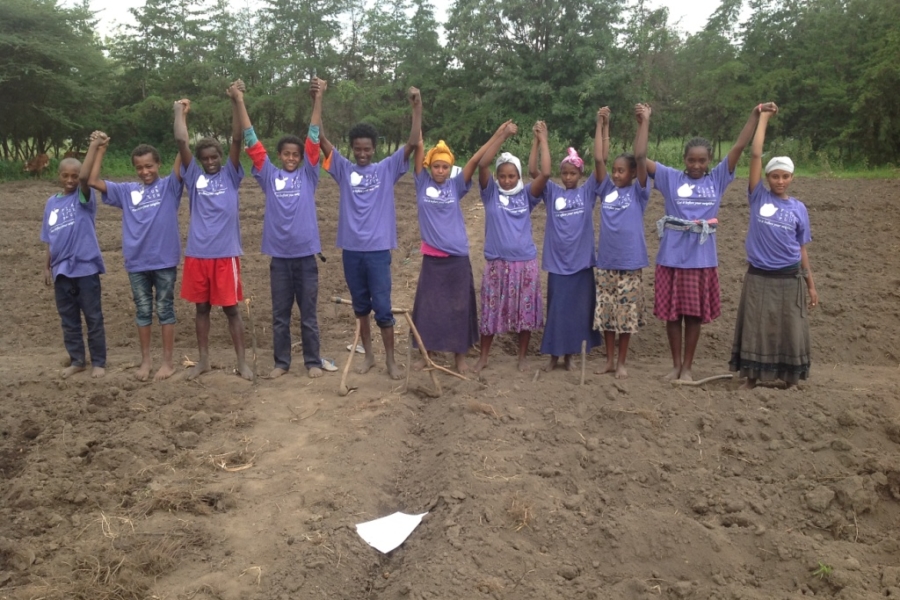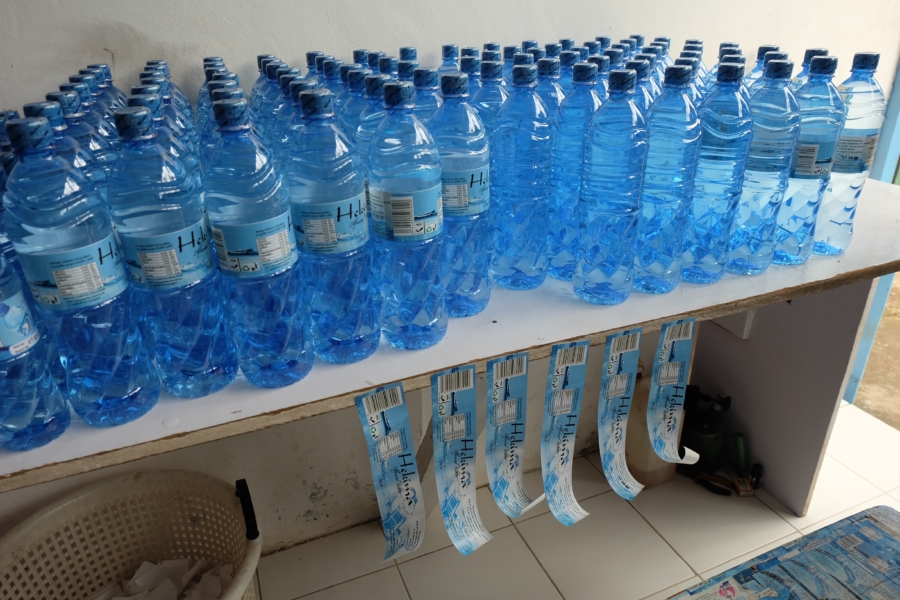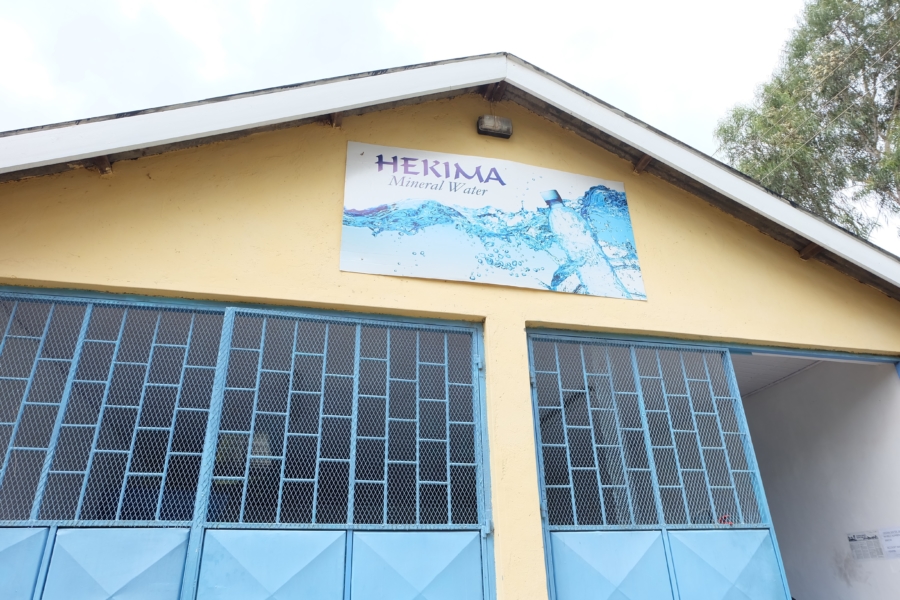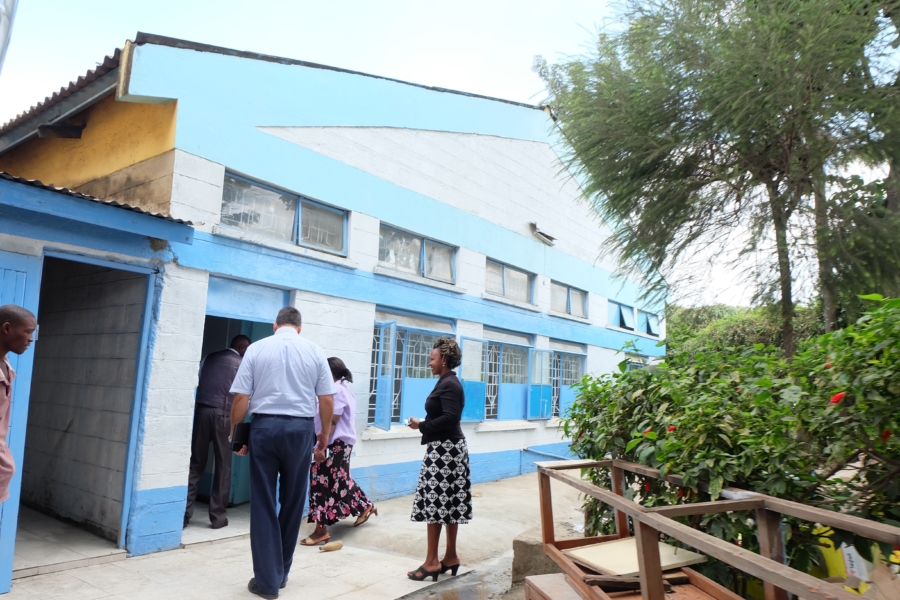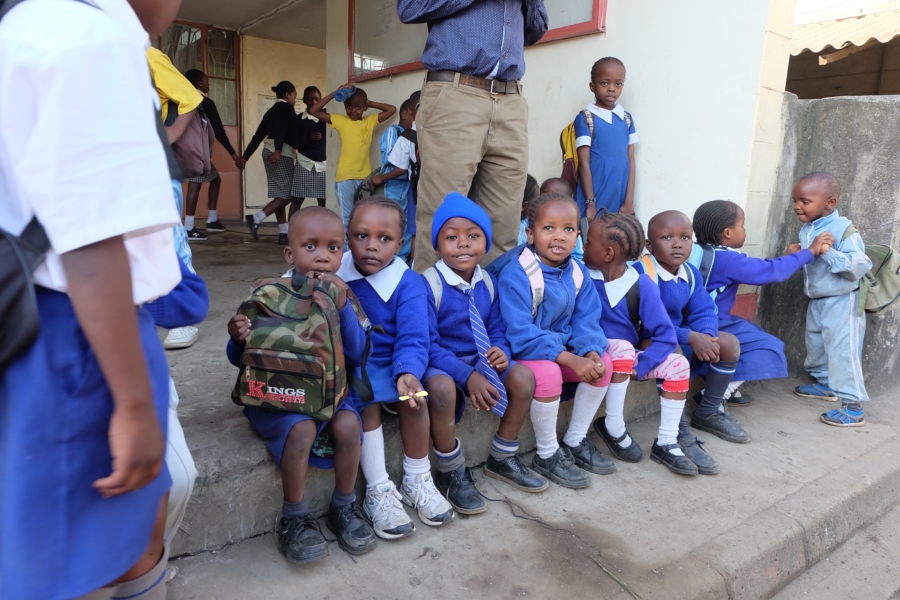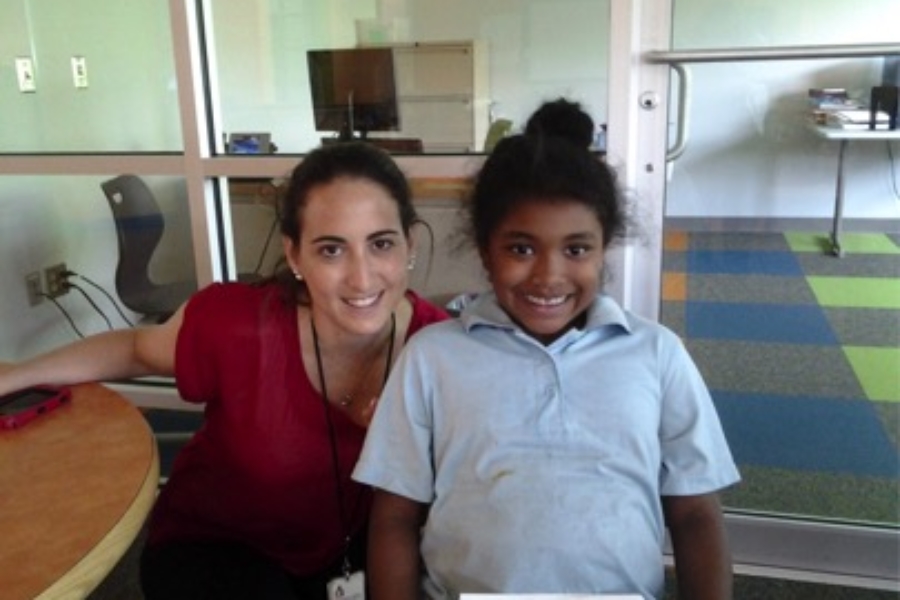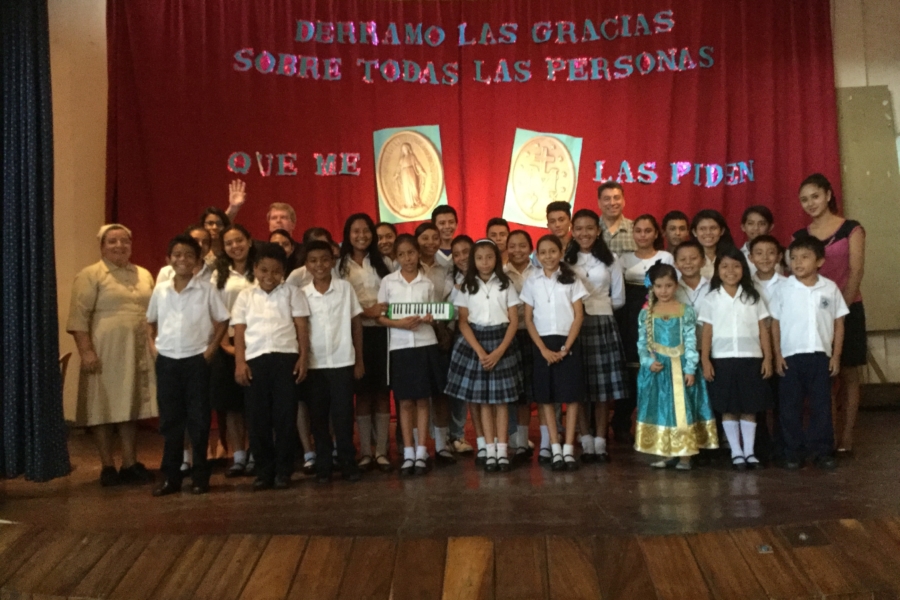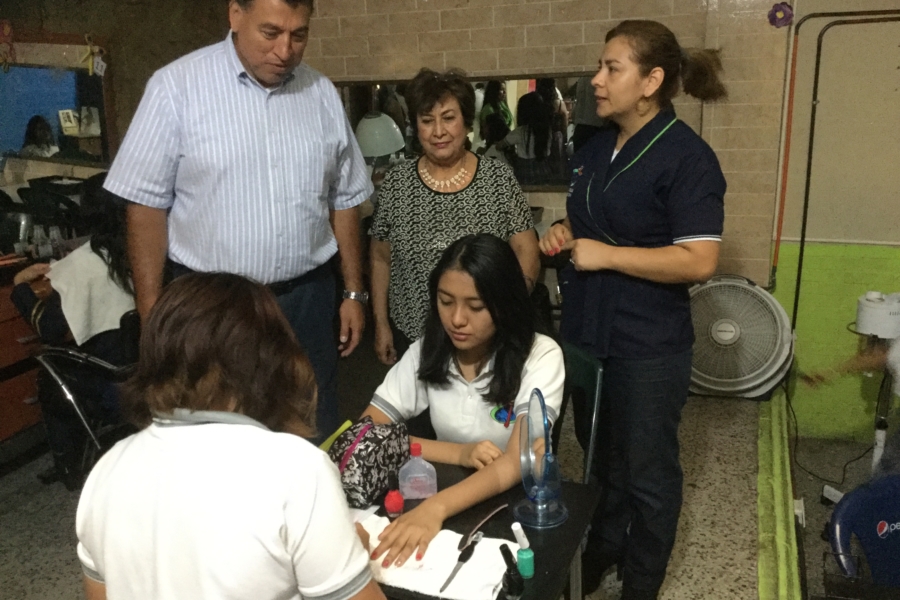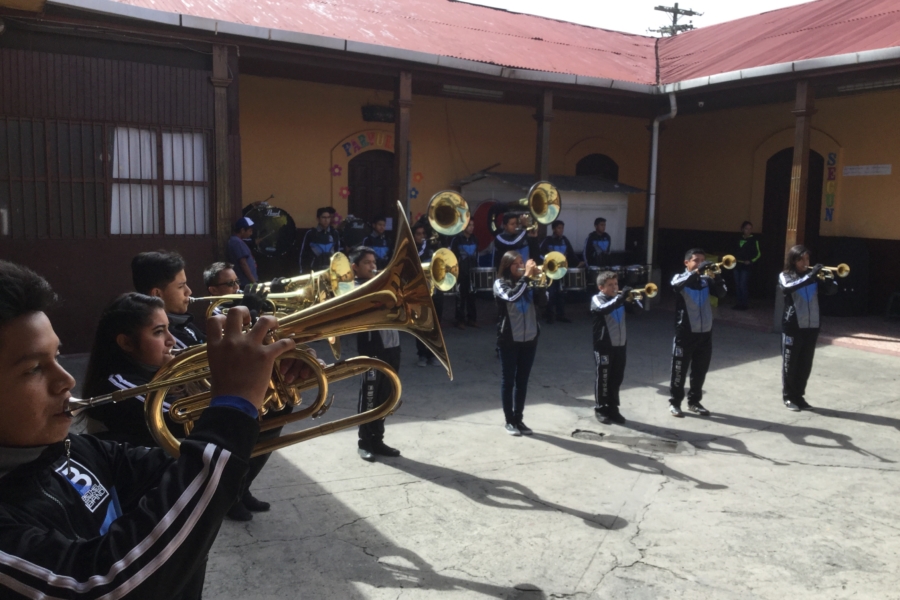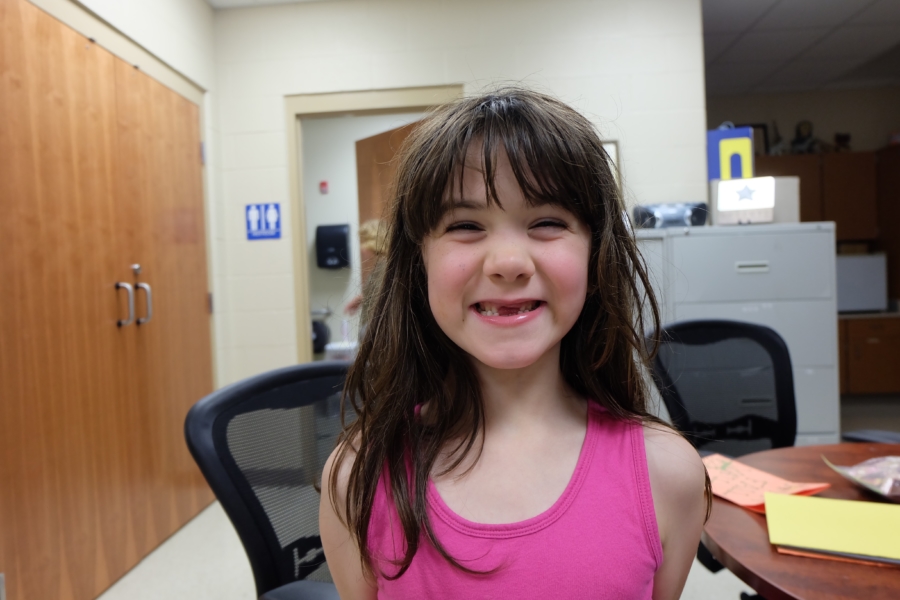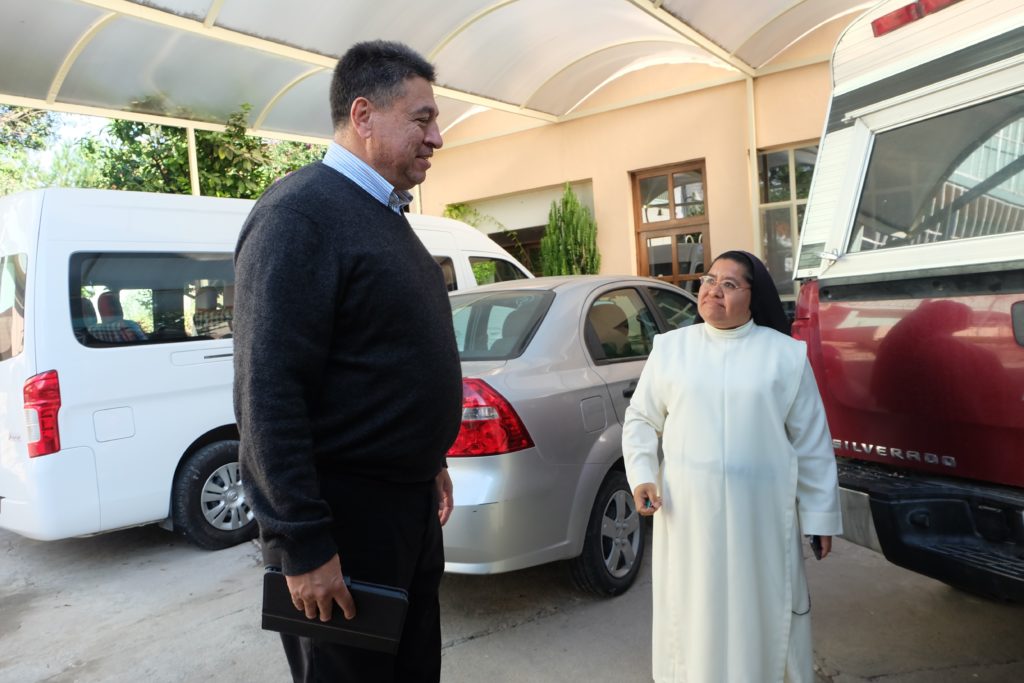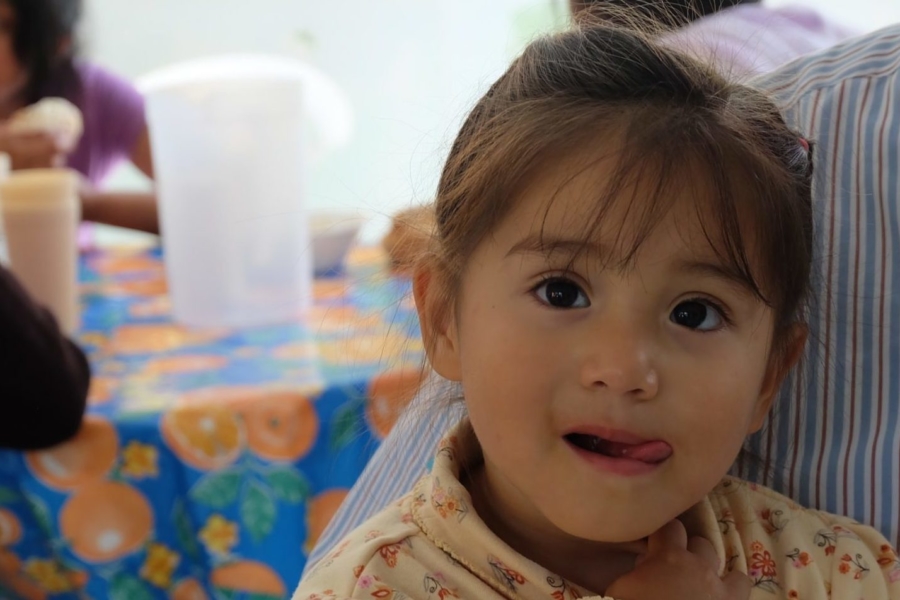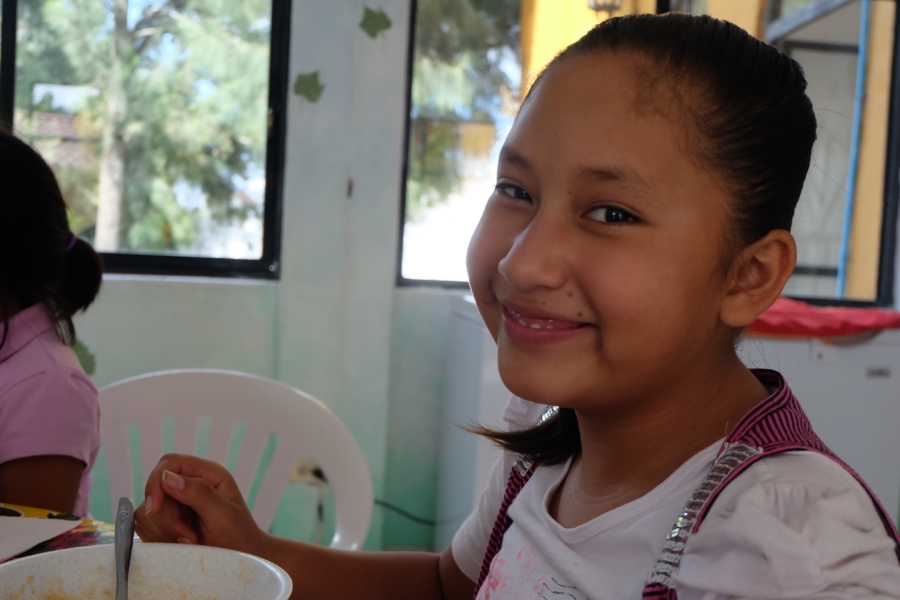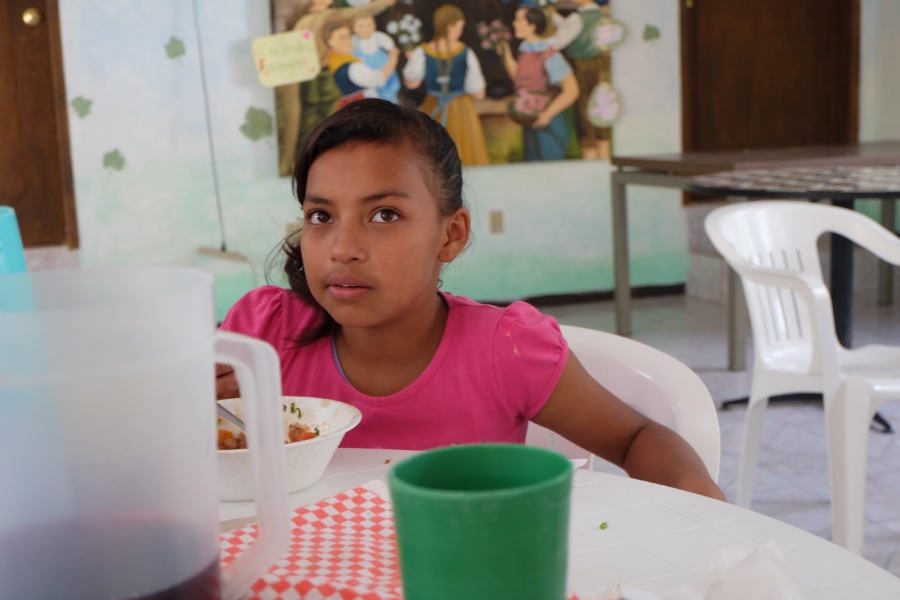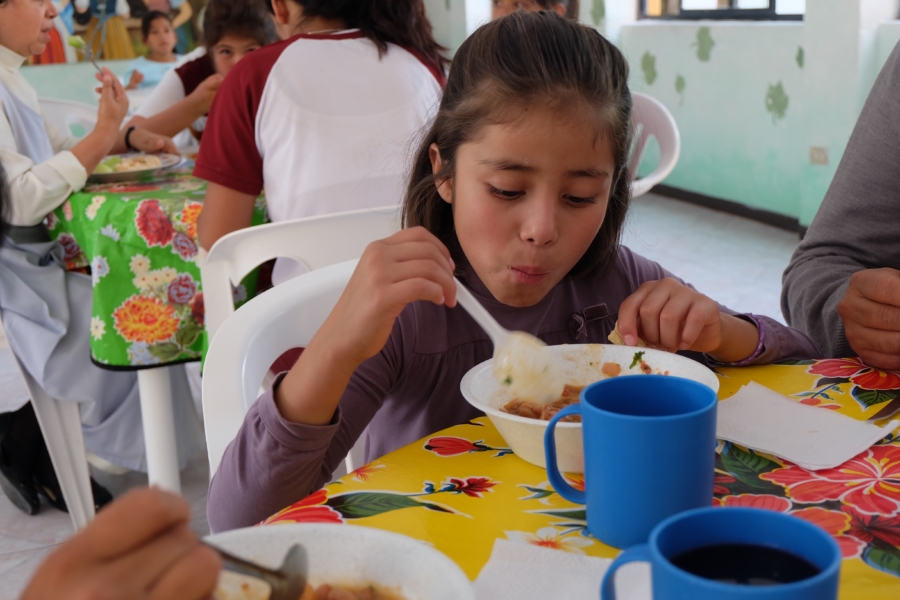Since I first started visiting our affiliated projects in Eastern Kentucky in April of 2015, I have been reporting on the burden of poverty that our sponsored children and their families face every day. With a lack of jobs and scarcity of resources for people in need in this region of the United States, I often get asked when I return home: Why don’t people in need just move somewhere else?
It is a question that I had not been able to answer on my own, because quite honestly, I didn’t know how to answer it. When your situation seems bleak, and there are few opportunities for a better future for you and your children, why not leave and start over in a new place?
Feeding kids hundreds of miles away
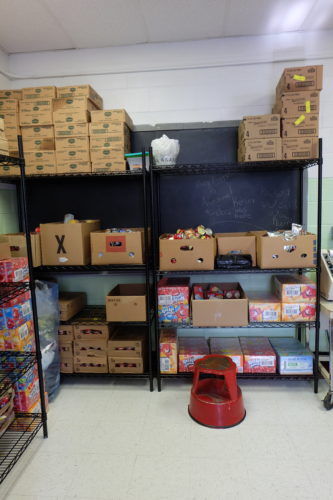
Boxes of food line the walls of the resource center.
I decided to talk to our Volunteer Coordinator, Barbara Hall, at Blaine Elementary School in Lawrence County about this issue. I knew Barbara would be able to shine some light on the subject; she has been working in the school system for 23 years, and has been a resource coordinator since 2000. Currently, Barbara plays an integral role in ensuring that students are fed every day, in addition to her many other responsibilities.
200 children attend Blaine Elementary School in Blaine, Kentucky, and 85 to 95 percent of those kids are receiving reduced price or free lunches. There are currently 79 children receiving food to take home on the weekends through the school’s backpack feeding program. Barbara explained that without the help of a church in Alabama that supports her school, she wouldn’t be able to help all these children.
The church not only raises money to provide food for the students, but they also do all the shopping – and they even drive eight hours to Blaine Elementary School once a month to distribute the food. Barbara is incredibly grateful for this support; she said that there are very few businesses in Blaine to sponsor food and clothing drives for poor families. Without this church, she doesn’t know how she would ever help so many children who would otherwise not be able to eat on the weekends.
The children most in need of sponsors are the ones that come to school dirty, with worn out clothes and old shoes, and providing them with new items is something they really value.
Through Barbara’s story, it was apparent that she knows very well the hardships that families living in poverty face here – especially the children in our program. She said that the children most in need of sponsors are the ones that come to school dirty, with worn out clothes and old shoes, and that providing them with new items is something they really value.
When I asked her the tough question about why families have stayed in Eastern Kentucky long after the coal mines closed, businesses started to move out, and stores closed down, she said that in actuality, many families have left to look for jobs elsewhere. But a lot of people haven’t moved away, and it was for more reasons than I could have come up with on my own.
The many reasons not to move
For many families, the simple answer is that they have nowhere else to go. They have no relatives outside of Eastern Kentucky, and everyone they know lives near them. Another reason families don’t move is because they are comfortable where they are and with their current surroundings, and the idea of making a big change in life is overwhelming, because it is easier to stay in an already familiar place. And even though they may not have much beyond a small piece of land and an old trailer in which to live, these families, despite being poor, have a great deal of pride in what little they have. It was something with which I could empathize greatly, as I, too, am proud of my home.
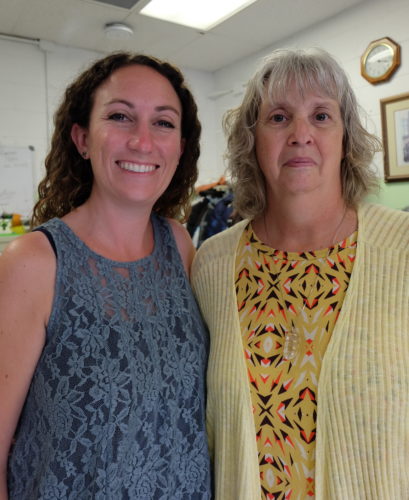
Our Volunteer Coordinator, Barbara, and U.S. Projects Specialist, Shelley Oxenham at Blaine Elementary School
Another reason many families don’t move is because moving is too expensive. Jobs aren’t guaranteed anywhere, and neither is housing. I had heard the day before from our coordinators LuAnn Kelly and Anne Preece, who also work in Lawrence County, that many parents travel as far as South Carolina and North Carolina to work, and return home only on the weekends. Others drive a few hours each day to commute to jobs within the state. Those who don’t drive out of the county for work have settled for jobs that would typically be for high school students, like at fast food restaurants, to support their families.
It all started to make more sense. Why would you move your kids away from grandparents, aunts and uncles, and cousins, and have them change schools, when you can’t be sure the next place would even offer anything better?
Come to find out, the answer to my question was complex; not only did it have many practical implications, but it had a lot of heart to it, too. Whether living in poverty or not, moving isn’t easy, and it’s not something that just anyone can do. Even if resources are scarce, some families in Lawrence County can count on the support of coordinators like Barbara, and programs like our sponsorship program and the backpack feeding program.
Beyond that, Kentucky is home for these families, no matter what changes around them. Whether businesses move in or out of the county, and as industry comes and goes – it doesn’t make Kentucky any less of a home and a place to be proud of for its residents.
***
HOW DO I SPONSOR A CHILD IN KENTUCKY?
You can sponsor a child in Kentucky in one of two ways: call our office at 1-800-538-5381, or email us at sponsorship@children-inc.org.

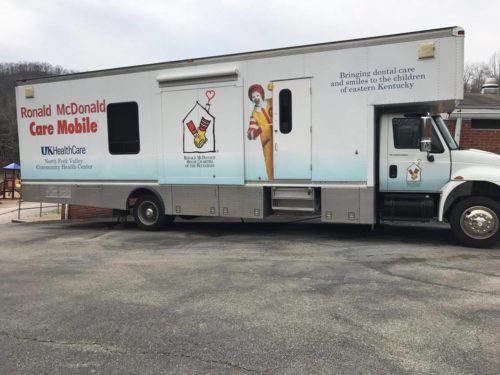
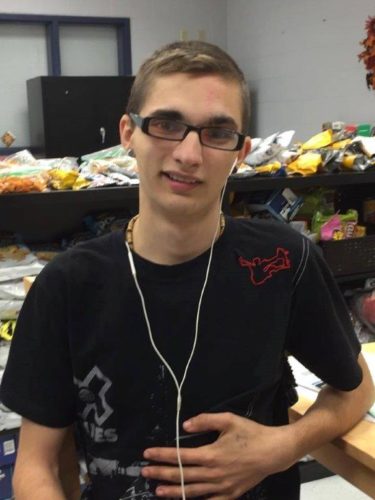
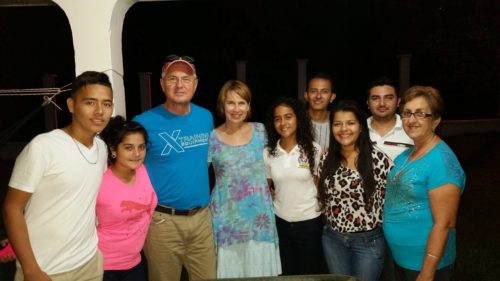
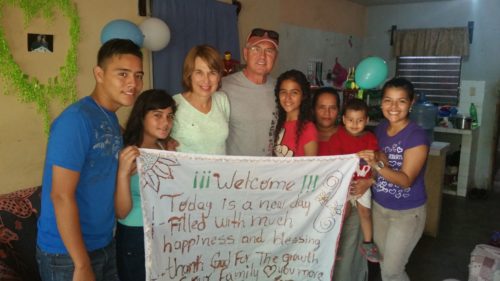 DW: Yes, I try to write them at least as often as they do, if not more — six to eight times a year, and then on birthdays and holidays as well.
DW: Yes, I try to write them at least as often as they do, if not more — six to eight times a year, and then on birthdays and holidays as well. 